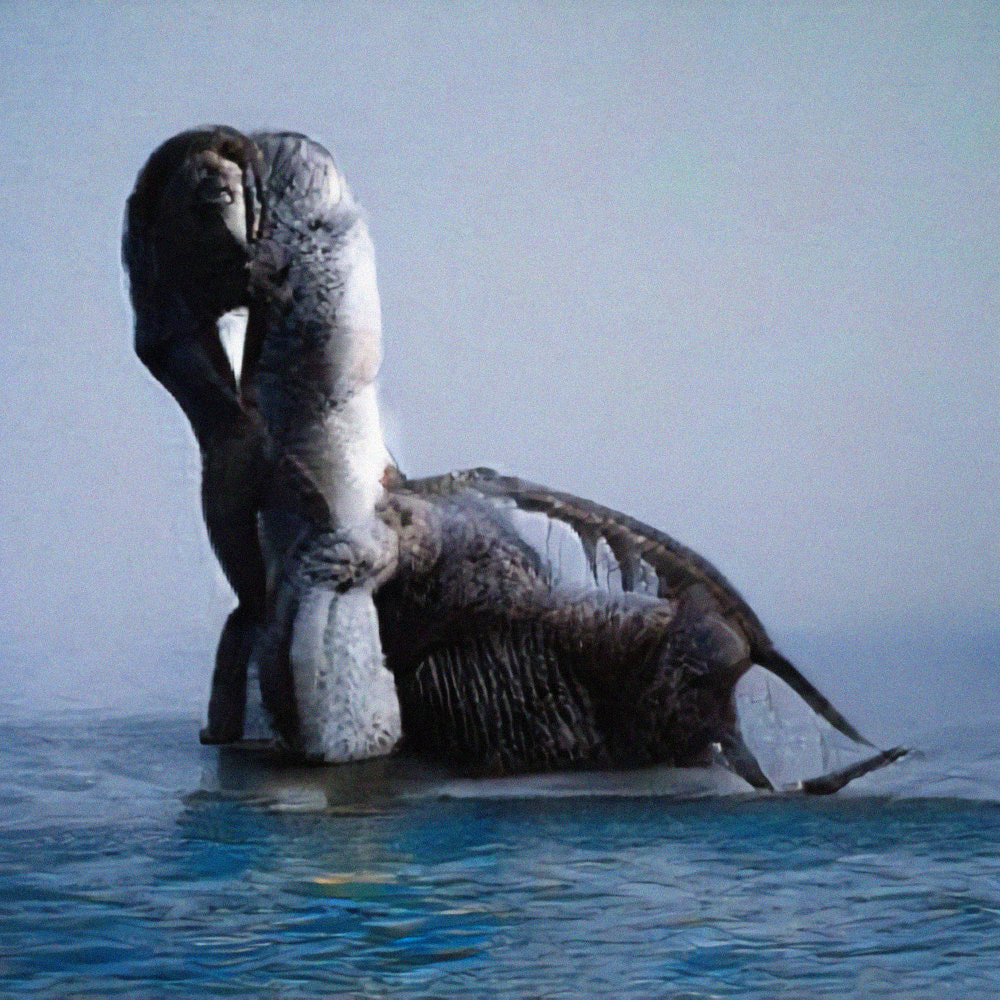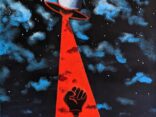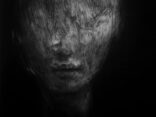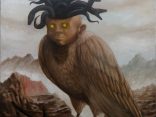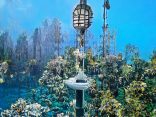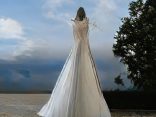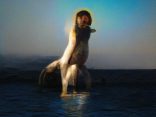Autore
Indice
- Introduction
- The border between man and animal
- Rilke, metaphysical poet: Heidegger's accusation
- Concluding reflections: Rilke and Heidegger, points of convergence
↓ download pdf
S&F_n. 26_2021
Abstract
The Border between man and animal: On Heidegger’s interpretation of Rilke’s Eight Elegy
The following contribution aims to analyse the main elements and motives underlying Heidegger’s critique of Rilke's Eighth Elegy, elements and motifs which appear in their own right in the 1942/43 course that Heidegger gave in Freiburg and which resulted in the volume entitled Parmenides. Here, in fact, the philosopher confronts, among other things, one of Rilke's most famous works and, going well beyond the exegesis of the text, puts forward an interpretation of the work itself in which Rilke and his Eighth Elegy are, so to speak, accused of using and developing concepts and themes proper to metaphysical thought. The aim of the following paper is therefore to explore the Heideggerian critique and to show in what sense Heidegger considers Rilke's elegy to be «metaphysical».
- Introduction
At the end of the course held in the winter semester of 1942/43, Heidegger approached the eighth of Rilke's Duino Elegies, giving rise to a stimulating confrontation that revolved around the notion of the «Open»[1] — an approach that the philosopher would take up again a few years later, in 1946, on the occasion of the conference Wozu Dichter?[2] for the twentieth anniversary of the poet's death on 29 December 1926.
With his interpretative reading of the Eighth Elegy, Heidegger takes an active part in the debate concerning the relationship between organism and environment (internal-external, subject-object), examining those fundamental primary characteristics that unequivocally distinguish and differentiate the environment from the world, the animal from man. Heidegger's interpretation of Rilke's elegy sheds light on a problematic background from which impulses and question marks unfold appear that Heidegger shows himself to be confronted with: studies of organic realities; environmentalist theories and observations on the habitat of living things; the urgency of rethinking the difference in essence that exists between man and animal; and the project of a philosophical understanding of the problem of man and the question of his specific place in the world. Against this backdrop, Heidegger also composes a polyphony of philosophical and cultural-historical motifs that gradually open up fundamental problems such as truth, freedom and technology. Focusing in particular on the specificity of the human condition in its original relationship with the being of the phenomenon, the philosopher reinterprets biological studies of the Umwelt[3]. The result of this confrontation is the affirmation of the notion of the Open, which becomes fundamental for raising the question about the peculiarity of the human condition[4].
- The border between man and animal
The Eighth Elegy, dedicated to his Austrian writer friend Rudolf Kassner, was composed by Rilke in February 1922 in the small castle of Muzot, located in an enchanting alpine setting near Sierre, Switzerland. It clearly shows the influence of the biological research of the time. In his verses, in fact, the poet tackles the question of the living with originality, articulating a poetic discourse in which the theme of the Umwelt finds expression with reference to the actions of the mosquito, the bird and the bat. In this regard, it is important to bear in mind the relationship of esteem and friendship between the poet and the biologist Jakob von Uexküll, a lasting bond that arose in March 1905 when, during an informal meeting, the two devoted themselves to reading passages from Kant's Kritik der reinen Vernunf. Impressed by von Uexküll's research, Rilke rethought the motifs of contemporary science in his Eighth Elegy, exploring the limits and possibilities of human existence by contrasting the experience of animal and human life.
With the opening lines of the Eighth Elegy, a dense and detailed interpretative analysis begins, by means of which Heidegger measures himself against one of the highest moments of Rilke's poetology:
- Mit allen Augen sieht die Kreatur
- das Offene. Nur unsre Augen sind
- wie umgekehrt und ganz um sie gestellt
- als Fallen, rings um ihren freien Ausgang.
- Was draußen ist, wir wissens aus des Tiers
- Antlitz allein; denn schon das frühe Kind
- wenden wir um und zwingens, daß es rückwärts
- Gestaltung sehe, nicht das Offne, das
- im Tiergesicht so tief ist. Frei von Tod[5].
The above-mentioned verses introduce a particular experience of meaning. According to the philosopher, they immediately reveal the thematic focus of the entire elegy, drawing attention to the question, crucial for the poet, about the correlation between two key concepts: «the creature» (die Kreatur) and «the Open» (das Offene).
Heidegger's reflection shows how Rilke uses the term «creature» to refer to non-human living beings. More precisely, the «creature» is the animal. From this preliminary observation it is already possible to determine what, according to Heidegger, is the recurring theme of the elegy, namely the contrast between the essence of man and that of the animal. This is an argument from which a reflection on the opposition between the being living without reason, the animal, and the one who is endowed with it, man, unfolds.
What actually emerges in the poem, however, is the privileged status of the animal creature, which appears above all to enjoy the possibility of referring to the Open and seeing it, albeit indistinctly. The Open is here taken as the absolute in the sense of the unbounded, the unconstrained, which is always experienced by the immediacy of animal instinct and not by the mediated operation of man, who, circumscribed within a limited horizon, cannot at all glimpse and recognise what lies outside this horizon. Nevertheless, according to the poet of the Eighth Elegy, some human figures are able to spontaneously perceive or intuit the presence of the Open. As a result, they manage to live, albeit occasionally, in the utmost purity because they have the ability to disengage from and escape from that gedeutete Welt («interpreted world») made up of articulated schemes and mediations. These figures are, for example, children and lovers. By relying on play, imagination and fantasy, the former often make the detachment (a shock) from the obligations and ties that mark everyday life, not having yet received the instructions and notions to interpret (schematise) the world around them; the latter, on the other hand, strengthen their feelings, especially if the feelings are cultivated far from the beloved, accessing an existential dimension of desire never consumed or possessed. Finally, in addition to children and lovers, another figure taken into consideration by the poet is that of the dying human being. This is the condition when one is «close to death» (nah am Tod), that is, when one is no longer shaken by the thought of death and preoccupation with it. If, throughout life, the anguish of death assails the human soul, which everywhere sees the pitiless sunset standing between itself and its world, at the moment in which it senses the imminence of his end, the dying person, paradoxically does not see it and does not care. His gaze, like that of the animal, finally acquires the ability to look unconditionally outside, towards the «outside» (draußen), into das Offene, where there is no death and no more Deutung, where, in Rilke's sense, one is truly free. For the poet, then, the only authentic (i.e. unconditioned or pure) existence — apart from that of the animal —would seem to be that of the child, the lover and the dying person who, free from the conscious yoke of the objects of the world, openly rise towards the pure space of immediacy, emerging from a world that is closed in itself.
Thus, with the notion of the Open, the poet postulates the departure from human subjectivity, if by this he refers to the relationship that binds the subject (man) to the object and vice versa. Through a comparison with animal life, he measures himself against the insurmountable limits of man's nature, emphasising a constitutive impediment that emerges, in all its drama, as the figure of an inexorable distance: the distance between man and the Open. For this reason, in his elegy Rilke implies an equation between what is not rational and what is unlimited and, vice versa, between what is limited and what is rational. In poetic terms, he performs what Heidegger calls a veritable reversal of the hierarchical relationship between man and animal. Underlying this reversal is Rilke's idea that the lack of reason is not an existential deficiency or gap for the animal, but a gain.
Thus according to Heidegger, Rilke's poetry conceals a discourse committed to celebrating the excellence of «the free animal» (das freie Tier) over the finite man, a prisoner of the gedeutete Welt. It is precisely because it is not rational, and therefore not aware of itself or the outside world, that the animal reveals itself as pure and free. The absence of consciousness becomes a kind of primary character that becomes an expression of excellence and that makes the animal, and its environment, pre-eminent over the complexity and artificiality of human reality.
Rilke's thesis is therefore, for Heidegger, synthesised in the idea that the animal «sees» (sieht) more and better than man. Why? Because its eyes do not stop to represent and interpret the objects it encounters. On the contrary, human eyes always turn in the direction of the object in the mode of representation, fixing it, calculating it and imposing an established order on it[6]. Consequently, while the animal does not represent external objects, nor does it look at its own state, human eyes "are as if turned around" (sind wie umgekehrt). They stop each time with the aim of ordering and dividing the world according to certain categorical grids, grasping the parts in a fragmentary way and never fully grasping the whole, the Open. For this reason, man — and this is what Rilke's elegy announces from the outset — is excluded from the possibility of living a full, pure or absolute life, since he is forcibly inserted into the relationship that objects have with him as a subject. All this represents what Rilke calls in the elegy Schicksal[7]. That is, it is human «Fate» which leads man to stay on this side of the Open, outside of it, condemned to live within an object horizon that in fact never lets him enter the Open, but rather immer gegenüber, always and only in over against it. For this reason, the word with which the poet designates men is Zuschauer: they are thought of as «spectators» who, by virtue of their re-presenting nature, are in any case zugewandt («turned towards») the understanding (mediation) of the object and never actually oriented towards what is hinaus («beyond») their representation of things-towards the Open[8]. This is for Rilke the great human constraint and condemnation, which is likewise a Fate that does not offer man the possibility of being able to see, in its purity, the shadow side of Sein («Being»). Consequently, Rilke's reflection goes so far as to determine the human essence as both imprisoning and imprisoned. On the one hand, it is imprisoning because it tends to determine and represent (and therefore, in a certain sense, to imprison) external objects, violating and imprisoning them within certain mental categories; on the other hand, it is also imprisoned because it necessarily depends on the our relationship with the objects themselves.
By contrast, as mentioned above, the animal paradoxically sees more than man because its gaze is never arrested by objects, but is open (Ausblick). It is a conception in which the animal is understood as the particular living creature that, by its nature, does not allow itself to be blocked or held back by the objects of the world. Its eye is not turned at all, but looks straight ahead with an endless open field in front of it, not allowing itself to be clouded by «feelings of decline» (e.g., the knowledge that it is going to die) that would preclude its acting.
According to the latter statement, the animal is even frei von Tod (lit. «free from death») because, having no self-consciousness or self-awareness, it does not even have the capacity to turn in on itself — it does not bend towards itself (does not re-flex) — but always has «its decline (or sunset)» (seinen Untergang) behind it[9]: it is therefore not concerned with its own condition as a transitory being and with the future, but lives life to the full, in an eternal vision, advancing without delay and barriers towards eternity[10]. For this reason, Rilke argues, the animal, unlike man, is an actor — and not a spectator — since: (a) it is not governed by the perception of time and the end; and (b) it does not need to place things before itself in order to grasp them intellectually, subject to an interpretative and categorising thought, but is always inside the living space (Raum) of the Open, living in the fullness of a world that overflows and is openly given in its purest totality.
Here a major difference between Rilke's elegy and Heidegger's reflection on it emerges. While the poet sings in verse of man's essentially dramatic condition, marked by the lack of immediate and direct contact with the world (which he must always represent or categorise through a priori forms in order to attempt to understand), the philosopher insists on the fact that it is man, and never the animal, who «sees» (sehen) the Open as the problematic horizon within which the manifestation of Sein is offered and in which that «dis-closing» or «opening» (Erschlossenheit) occurs, which gives man the possibility of arranging and planning his own existence, consequently removing himself from the dependencies of the environment, going towards things and their eventuality, grasping their nature or truth in a full sense[11]:
Therefore neither can an animal move about in the closed as such, no more than it can comport itself toward the concealed. The animal is excluded from the essential domain of the conflict between unconcealedness and concealedness. The sign of such an exclusion is that no animal or plant «has the word»[12].
Unlike the animal, man (the existing being) for Heidegger is the possibility of a constant relation to the Open, which means that man is the very possibility of accessing the essence (Wesen) of beings. In this way, he manifests precisely the capacity to come to an understanding (accessibility) of phenomena as such. The animal, on the other hand, does not have access to the «as such». It lives in a kind of «environmental closure», or rather an «openness without unconcealment» that means an absence of relation to Being and, in a certain sense, an im-possibility (or inability) «to say» (sagen) Being[13]. The animal appears to be constitutively deprived of language, if by «language» (Sprache) we mean that particular dimension of openness that allows things to manifest and show themselves in and for themselves and as they are[14]. Thus, if it is true that where there is language, there is openness, it is also true that where there is no language, there is no capacity to access Being[15].
The perspectives that Rilke and Heidegger open up could not be more different and concern diametrically opposed ways of reasoning about the concept of freedom. In fact, if in the poet's thought freedom is understood as the absolute space of non-determination and non-relation, in the sense of immediacy, of non-mediation, of distancing from Deutung, in Heidegger's case, instead, freedom is always in relation with, and therefore a bond with other men and with things, within a totality of reciprocal relations that constitutes the world-Welt: in other words, freedom is the open access to beings as beings.
- Rilke, metaphysical poet: Heidegger's accusation
For Heidegger, the Eighth Elegy conceals echoes of an entire metaphysical philosophical tradition committed, through the use of a specific methodological criterion, to understanding and fathoming reality. «Metaphysics» is the term that, in a broad sense, the philosopher uses to identify a system of thought that, from Socrates and Plato onwards, has given rise to a gnoseological model founded on the opposition between ὐποκείμενον and ἀντικείμενον, between subiectum and obiectum. It is a model in which «subject» and «object» stand against each other as totally dissimilar and unequal entities. If the former is understood as a representative entity (man), the latter is understood as a represented entity (the world in general). Both, therefore, come to be thought in the most absolute divergence as fundamental components of a theory of knowledge aimed directly at understanding the totality of reality.
Heidegger therefore inscribes the Eighth Elegy in the Western metaphysical tradition since, in his opinion, the poet, through the description of the bond that binds the human species to the gedeutete Welt, revives, albeit with a critical eye, the old thesis according to which man, inserted in the sphere of animalia, is first of all thought of as an animal rationale, that is, as an animal, in some special way, endowed with reason, thanks to which he comes each time to articulate a real representation or determination of himself and of external objects that translates into (a) full control of all that is real and (b) the transformation of every thing into an object and instrument of representation.
Understood in this way, the interpretation of man as animal rationale is understood as a true metaphysical determination that revolves around the meaning of ratio (Vernunft), elaborated in the form of «learning», of Vernehmen, as that which takes (nimmt), proposes, imposes, arranges, adapts to itself the totality of reality and which, therefore, manifests itself first and foremost as a placing before itself: vor-stellen. According to this perspective, the proposition homo est animal rationale designates for Heidegger a certain way of thinking about the relationship between man and the world that ends up characterizing the human being as the one who, distinguishing himself unequivocally from the rest of the animals, «supplies to himself» (sich-zu-stellt) the re-presented, placing the object (the entity) before himself, fixing and controlling it.
More subtly, this interpretation of man is for Heidegger the basis of Seinsvergessenheit, the «forgetting (or oblivion) of Being»: this is the event in which Sein itself, completely emptied of its full meaning and subjected to the oppositional subject-object scheme, is forgotten and replaced by the domination of the logic of instrumental reason explicated in the mastery and consumption of reality (das Seiende), all occurrences and manifestations that are inextricably linked, on the one hand, to the planetary development of technological progress, and on the other, to the unstoppable exploitation of the earth's resources.
Thoroughly questioning the verses of the elegy, Heidegger argues that they expose themselves to a radical error in the interpretation of human nature; an error that, like the entire metaphysical narrative, tacitly leads, through distorted and inessential language, to a resolute estrangement from Sein, to that Seinsvergessenheit for which homo metaphysicus, with his claim to determine all that is real in order to make it the object of analysis and calculation, is clearly responsible.
What one might term Rilkean metaphysics, however, appears to Heidegger as highly original, if paradoxical. If it is true that man is interpreted as an animal rationale, it is also true that from the very first lines of the elegy this rational and objectifying nature is given, not as something extraordinary and powerful, but as an irrepressible weakness or a hindrance that does not allow immediate access to the horizon of the Open. Conversely, however, the non-human animal, the one removed from the domain of ratio, is redefined beginning with the absence of Deutung, which means precisely the absence of conditioning while at the same time possessing the possibility of going far beyond the limits, impediments and human constraints dictated by rationality. Reversing a traditional theoretical framework while remaining within the same metaphysical tradition, for Heidegger Rilke developed a poetic investigation with the aim of hierarchically raising the animal above man, consequently elevating the dimension of unconsciousness and irrationality above that of consciousness and rationality. In this way, the Heideggerian interpretation identifies in Rilke's elegy more or less evident metaphysical traces that refer to questions and concepts developed by scientific and philosophical speculation in the late nineteenth and early twentieth centuries, from Schopenhauer and Nietzsche to Freudian psychoanalysis, questions that concern in particular interrogating the domain of rationality and observations on the scope and autonomy of unconscious determinants that frequently escape the control of consciousness. The heart of the Heideggerian critique thus touches on the definitions of «man» and «animal» and has to do with the interpretation of human nature and the consequent questioning of the space of rationality as opposed to that of irrationality, by juxtaposing the categories of rationality and conscience with those of irrationality and unconsciousness. According to Heidegger, Rilke generated an «anthropomorphisation of the animal» and at the same time an «animalisation of man», giving rise to a new hierarchy between man and animal. In other words, the poet has reconsidered the classical position, based on the supposed superiority of human nature over animal nature, prudently re-exploring, in the wake of modern biological and philosophical reflections, the space of the living being, arriving however at affirming a new hierarchy, a new tension between animal and man. In this tension, which in fact translates into the opposition between a new "subject" (the free animal) and a new «object» (the imprisoned man), Heidegger still finds the presence of the spirit of metaphysics in Rilke's elegy. By completely overturning the content and meaning of the classical interpretation of man as animal rationale, Rilke establishes, according to the philosopher, a bizarre and peculiar oppositional dynamic according to which the animal is placed even above man, becoming in a certain sense more than human. Heidegger accuses the poet of having staged a poetics conditioned by the redefinition of the animal as Subjekt, a «subject» that enjoys an exceptional status in the hierarchy of living beings insofar as it is able to see (sehen) the Open, and is therefore peremptorily opposed to everything that concerns the human and its field of action[16]. For this reason, free from the pressures and limitations that ceaselessly afflict man's Welt, the animal is grasped in the same way as the Übermensch (a «super-man»[17]), revealing itself naturally more-than-human (compared to the Untermensch or sub-human, exemplied by the animal) who is granted the freedom to experience in his immediacy and incorruptibility the vitality of the reality it instinctively inhabits.
- Concluding reflections: Rilke and Heidegger, points of convergence
There is no doubt that Rilke's Eighth Elegy contains a critique of human subjectivity. The reference to the animal-open relationship is fundamental for the poet because it allows him to advance, in poetic language, a reasoning based on the centrality of the dimension of immediacy and, in a certain sense, illogicality. According to this assumption, the full revelation of the Open is precluded by rational or logical thought; hence human logic, made up of constructs, constraints and determinations, is understood as having in itself a substantially limited nature since, in the articulation of its thought, it is never measured against the depth, purity and richness of meanings that define the horizon of the Open. Influenced by the need to determine the things that surround the world, ordering and dividing them, giving them a practical functionality, man is for Rilke dominated by a state of Wendung («upheaval») or Umkehrung («upset») that does not leave him truly free to act and think the world, generating an irreversible change in his relationship with things. In this consists Rilke's critique of the concept of Deutung, a critique that reflects the one made a few years later by Heidegger, whose intellectual target — if I may call it that — is called «metaphysics», if this means a complex and well-structured system, strictly speaking hinged on the concept of Vorstellung, from which a representative-calculating thought is developing that, through abstract conceptual schemes and precise categorical meshes, fulfils the task of possessing (representing and calculating) the world.
Beyond Heidegger's interpretative reading, which appears in the end to be distorted and rather ungenerous towards Rilke's Eighth Elegy, relevant points of connection emerge that allow us to relate the thought of the poet and that of the philosopher, even though the two use specific manners of speaking and different strategies of thought. In both of them, in fact, the question of the Open as a manifestative origin hides the necessity of a critique of instrumental reason and its claim to hold the real in its hands. Both, after all, rely on a language, a poetic and not strictly scientific one, which cannot be elaborated in the form of logical discourse and which therefore opens up to the revelation of the Open. What basically emerges, both in Rilke's poetry and in Heidegger's philosophical reflection, is the scope of a thought, no longer conceptual and demonstrative, capable of shedding light on the question about the original experience of the Open, questioning the efficiency and capacity of rationality to fully grasp the primary meaning of things. By affirming the experience of an inexpressible and unspekable language in the grammar of logical discourse, Rilke and Heidegger are thus concerned with building a wesentliche Erwägung based on the possibility of naming the Open and inhabiting it from the ground up.
[1] M. Heidegger, Parmenides (1982), tr. eng. A. Schuwer and R. Rojcewicz, Indiana University Press, Bloomington 1993.
[2] Id., What Are Poets For (1950), in Poetry, Language, Thought, tr. eng. A. Hofstadter, Harper & Row, New York 1971, pp. 89-142.
[3] On the concept of Umwelt («environment», «surrounding world») see R. Langthaler, Organismus und Umwelt, Olms, Hildescheim 1992. See also U. Sutrop, Umwelt, Word and Concept: Two Hundred Years of Semantic Change, in «Semiotica», CXXXIV, 1/4, 2001, pp. 447-462.
[4] On this topic, see for example D. Dahlstrom, The Opening of the Future: Heidegger's Interpretation of Rilke, in «African Journal of Philosophy», XXXII, 4, 2013, pp. 373-382. See also V.M. Foti, Heidegger and the Poets: Poiesis/Sophia/Techne, Humanities Press, Atlantic Highlands (N.J.) 1992; J. Young, Heidegger’s Philosophy of Art, Cambridge University Press, Cambridge 2001.
[5] «All eyes, the creatures of the World look out / into the open. But our human eyes, / as if turned right around and glaring in, / encircle them; prohibiting their passing. / What lies outside, their faces plainly show us. / Yet we compel even our youngest; force / each child always to stare behind, at what's / already manifest, and not to see / that openness which lies so deep within / the gaze of animals. Death leaves beasts free» (R.M. Rilke, Duino Elegies [1923], Bilingual Edition, tr. eng. S. Cohn, Northwestern University Press, Illinois 1989, pp. 64-65, vv. 1-9).
For a commentary on the Eighth Elegy see J. Heiner, Erläuterungen zur «Achten Elegie», 2004, http://www.lyrikrilke.de/index.php?option=com_content&view=article&id=97:erlaeuterungen-zur-qachten-elegieq&catid=45:kurzkommentare-zu-den-elegien-1-bis-10&Itemid=62.
[6] Cfr. M. Heidegger, Parmenides, cit., p. 157.
[7] «Dieses heißt Schicksal: gegenüber sein / und nichts als das und immer gegenüber»; «We call it Fate to be in opposition. / Nothing but that. Forever opposite». (R.M. Rilke, Duino Elegies, op. cit., pp. 66-67, vv. 33-34).
[8] «Und wir: Zuschauer, immer, überall, / dem allen zugewandt und nie hinaus!»; «And we, we stay spectators; turned towards / all things and still transcending none» (ibid., pp. 68-69, vv. 66-67).
[9] «[…] das freie Tier / hat seinen Untergang stets hinter sich»; «[…] Animals / keep death behind them […] » (Ibid., pp. 64-65, vv. 10-11).
[10] «[…] und wenn [das freie Tier, "the free animal"] es geht, so gehts / in Ewigkeit, so wie die Brunnen gehen»; «And when a beast passes, it passes in / eternity, as rivers run […]» (Ibid., vv. 12-13).
[11] On the singular question of the difference between «man» (weltbildend, «world-forming») and «animal» (weltarm, «poor in world») in Heidegger, see the 1929-30 course: M. Heidegger, The Fundamental Concepts of Metaphysics: World, Finitude, Solitude (1983), tr. eng. W. McNeill and N. Walker, Indiana University Press, Bloomington 1995. See also G. Agamben, The Open: Man and Animal (2002), tr. eng. K. Attell, Stanford University Press, Stanford 2004, pp. 49-56; S. Spina, Esistenza e vita. Uomo e animale nel pensiero di M. Heidegger, Mimesis, Milano-Udine 2015.
[12] M. Heidegger, Parmenides, cit., pp. 159-160.
[13] It is in this sense that Heidegger introduces the concept of Benommenheit, «captivation» (of the animal), in his 1929-30 lecture course: «captivation [Benommenheit] of the animal therefore signifies: essential withholding [Genommenheit] of every apprehending of something as something. And consequently: insofar as withholding is a being-taken [Hingenommenheit] by…, the captivation of the animal characterizes the specific manner of being in which the animal relates itself to something else even while the possibility is withheld from it — or is taken away [benommen] from the animal, as we might also say — of comporting and relating itself to something else as such and such at all, as something present at hand, as a being. And it is precisely because this possibility — apprehending as something that to which it relates — is withheld from it that the animal can be so utterly taken by something else» (M. Heidegger, The Fundamental Concepts of Metaphysics: World, Finitude, Solitude, cit., pp. 247-248).
[14] Language, in an essential sense, is in fact for Heidegger not simply the ability to articulate sentences that make sense, but is, more subtly, the dimension itself through which man can say and show everything that surrounds him: «Language is the happening in which for man beings first disclose themselves to him each time as beings» (M. Heidegger, The Origin of the Work of Art (1950), in Poetry, Language, Thought, cit., p. 72).
[15] Agamben writes on this subject: «The ontological status of the animal environment can at this point be defined: it is offen (open) but not offenbar (disconcealed; lit., openable). For the animal, beings are open but not accessible; that is to say, they are open in an inaccessibility and an opacity—that is, in some way, in a nonrelation. This openness without disconcealment distinguishes the animal's poverty in world from the world-forming which characterizes man» (G. Agamben, The Open: Man and Animal, op. cit., p. 55).
[16] Cfr. M. Heidegger, Parmenides, cit., p. 154.
[17] Ibid., p. 161.


